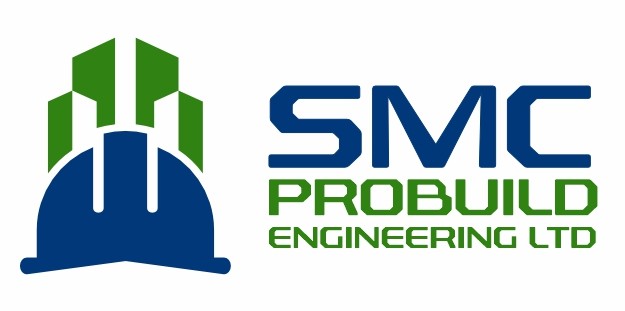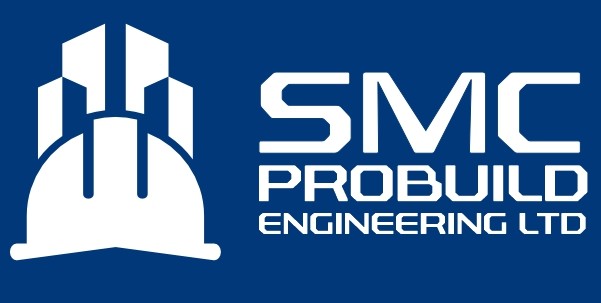Introduction
Building a home or commercial property is one of the biggest investments you’ll ever make. In Nigeria, choosing the wrong builder can lead to project abandonment, substandard work, and wasted money. Many Nigerians have lost millions to unreliable contractors, but with the right knowledge, you can identify professional builders who will deliver quality work on time and within budget.
This guide shares 5 essential tips to help you choose a reliable builder and protect your investment.
1. Verify Registration, Certifications and Past Work
The first step in choosing a reliable builder is confirming they’re actually qualified and legitimate. Start by requesting their Corporate Affairs Commission registration certificate and verify it online. For engineering projects, ensure they have COREN-certified engineers, which demonstrates professional competence and adherence to industry standards. Look for membership in professional bodies like the Nigerian Institute of Building.
Beyond paperwork, you need to see actual completed projects. Request to visit at least two or three buildings they’ve completed in the last two years. Don’t rely on photos or computer renderings—visit real project sites to inspect the quality of finishes, structural integrity, and how well the buildings have held up. Pay attention to details like cracks in walls, quality of tiles and fittings, and overall workmanship.
Most importantly, speak directly with past clients. Ask the builder for contact details of at least three previous clients and call them. Ask whether the builder completed the project as promised, how they handled delays or challenges, whether the project stayed within budget, and if they would hire this builder again. If a builder is reluctant to provide verifiable references or completed projects you can visit, walk away immediately.
2. Assess Financial Stability and Use Milestone-Based Payments
A builder’s financial stability directly impacts their ability to complete your project without abandonment. Look for signs like recently completed projects, professional office space, owned construction equipment, and permanent staff. Financially unstable contractors often use your advance payment to finish other projects, creating a cycle that ends in abandonment.
Never pay more than 30% of the total project cost upfront, regardless of how much the builder insists they need. Structure your payments around milestones you can verify: 20-30% initial mobilization, 20% after foundation completion, 20% after roofing, 20% after finishing works, and 10% final payment after inspection. Always pay into the company’s registered bank account and demand official receipts for every payment. Never make payments to personal accounts.
If a builder pressures you to make large upfront payments or pay ahead of schedule, consider this a serious warning sign. Everything regarding payment should be clearly documented in your contract, including exact amounts, what triggers each payment, and the timeline. This payment structure protects your money and gives you leverage to ensure quality and completion.
3. Evaluate Communication, Contract and Project Management
Pay attention to how the builder communicates during your initial inquiries. Do they return calls promptly? Can they explain things in simple language? Do they listen to your concerns? If communication is difficult before signing a contract, it will only get worse during construction.
Your contract must include detailed specifications of what will be built, specific brands and grades of materials, clear start and completion dates, payment schedule tied to milestones, warranty terms (minimum 12 months), and how changes will be handled. Never sign vague contracts or let builders pressure you to sign quickly. Have a lawyer review contracts for large projects.
Ask whether they’ll assign a dedicated project manager to your project who serves as your single point of contact. Find out how often you’ll receive progress updates and whether regular site meetings will be scheduled. The builder should clearly explain how they coordinate subcontractors, manage materials, and keep projects on schedule.
4. Verify Insurance and Safety Practices
Without proper insurance, you could be held liable if workers are injured or construction damages neighboring properties. Request proof of public liability insurance, workers’ compensation, professional indemnity, and equipment insurance. Verify coverage directly with insurance companies. If a builder claims insurance is unnecessary or too expensive, walk away immediately.
Visit ongoing construction sites to observe safety practices. Are workers wearing safety gear like helmets and boots? Is the site organized with materials properly stored or chaotic with hazards everywhere? Are there safety signs and barriers? Professional builders have documented safety policies, dedicated safety officers, and provide regular safety training. A messy, unsafe site indicates poor management and increased risk.
5. Compare Value, Not Just Price
The cheapest quote is rarely the best deal and often becomes the most expensive choice. Low prices typically mean cut corners, inferior materials, or hidden costs that surface later. Compare total value including material quality, realistic timelines, warranty coverage, and the builder’s reputation.
When comparing quotes, ensure all builders are using the same grade materials. Check whether specifications clearly state brand names or use vague terms that allow substitution with inferior products. Consider the real cost of delays—every month of delay means lost rental income or continued rent payments elsewhere. A builder who quotes slightly higher but completes on time with quality work often costs less than a cheap builder who takes twice as long and delivers poor workmanship requiring expensive repairs.
Get three to five detailed quotes, compare what’s included in each, and choose based on the best combination of quality, reliability, and fair pricing. Avoid both the cheapest (cutting corners) and most expensive unless there’s clear justification. The middle-range quote from a builder with strong credentials, good references, and comprehensive warranty usually offers the best value.
Common Mistakes to Avoid
Don’t hire builders based solely on personal relationships without proper professional evaluation. Even well-meaning friends can lack the skills to complete your project properly. Never pay more than 30% upfront—this is the number one cause of project abandonment. Always insist on detailed written contracts because verbal agreements provide zero legal protection. Don’t ignore warning signs like poor communication, vague answers, or prices that seem too good to be true. Trust your instincts and walk away if something feels wrong.
Conclusion
Choosing the right builder requires time and diligence, but proper vetting protects you from project abandonment and financial losses. Verify registration and completed projects, ensure financial stability and use milestone payments, assess communication and review contracts thoroughly, verify insurance and safety practices, and compare value rather than just price. A professional builder welcomes your due diligence, while builders who resist verification or pressure you to skip important steps should be avoided.

